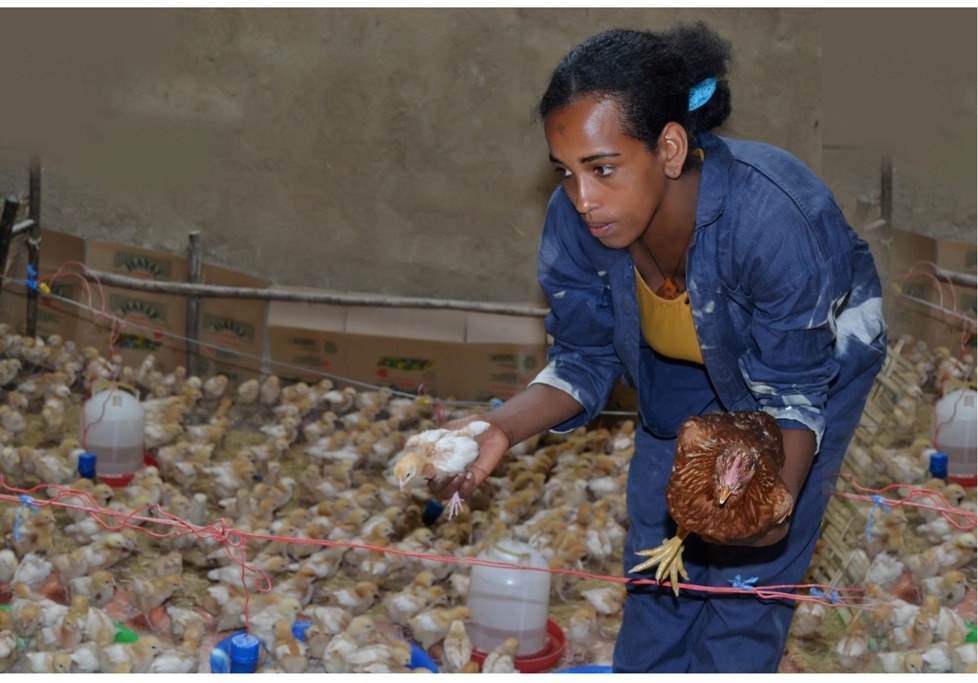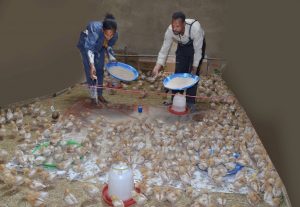
In 2013, Yegnanesh Aschale, who lives in northwestern Ethiopia, bought 10 chickens to feed herself and her family. As the chickens produced more eggs than expected, Yegnanesh quickly found herself with much more than she needed. She began selling to her neighbors and made a good profit. Recognizing a financial opportunity, she realized that she needed to scale up operations to keep up with demand.
“Without the support of FEED II, I wouldn’t be where I am today. I can’t tell you how much your support means to me.” – Yegnanesh Aschale, poultry entrepreneur
To support the future growth of livestock and poultry entrepreneurs like Yegnanesh, the USDA-funded Feed Enhancement for Ethiopian Development (FEED) II project organized a competitive selection process to award grants to entrepreneurs. FEED II received 80 applications and chose 18 individuals, including Yegnanesh, to receive the grant. Using these funds and leveraging some of her own money, she built two structures, complete with feeding and water facilities, to house up to 6,000 young hens. Between 2015 and 2016, Yegnanesh sold 7,200 hens to local poultry farmers and earned nearly $6,000 in profit. Currently, she is managing 2,000 chicks, which will be ready for sale soon.
Aside from increased income, Yegnanesh’s success also brought her recognition from the local branch of the government of Ethiopia’s Livestock and Fisheries agency, which promotes and oversees livestock- and aquaculture-related livelihoods and activities. Staff were so impressed with her progress that they started organizing events at her farm so that she could share her experience and skills with other farmers. One of those farmers, Fanta Gote, recently bought 500 chickens from Yegnanesh and noted that “the presence of [her] farm in the area is helping me to get chickens at reasonable price. I have learned a lot from her experience and knowledge.”

Yegnanesh’s husband, Adugna, works full time at their farm alongside five other employees. As she works to increase her business’s production capacity, Yegnanesh continues to think big: she is interested in working for an animal feed-manufacturing union, selling chickens and feed to customers as a package deal. In the long term, she dreams of owning her own feed mill and further expanding her successful poultry business.
Through financial assistance, technical support, and training, FEED II has supported the establishment and development of seven poultry and poultry-related enterprises. Together, these enterprises have sold 38,500 hens, earning more than $68,000 in profits. Since 2013, the USDA-funded FEED II project has worked to increase the incomes of Ethiopian smallholder livestock and poultry producers by improving access to and use of affordable, high-quality feed to support greater livestock productivity and efficiency.
More about our Feed Enhancement for Ethiopian Development (FEED) II project.








